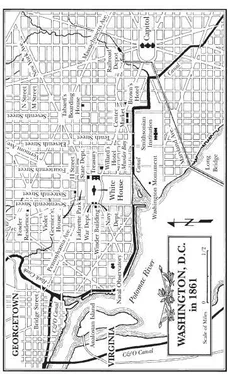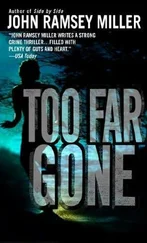John Miller - The First Assassin
Здесь есть возможность читать онлайн «John Miller - The First Assassin» весь текст электронной книги совершенно бесплатно (целиком полную версию без сокращений). В некоторых случаях можно слушать аудио, скачать через торрент в формате fb2 и присутствует краткое содержание. Жанр: Исторический детектив, на английском языке. Описание произведения, (предисловие) а так же отзывы посетителей доступны на портале библиотеки ЛибКат.
- Название:The First Assassin
- Автор:
- Жанр:
- Год:неизвестен
- ISBN:нет данных
- Рейтинг книги:3 / 5. Голосов: 1
-
Избранное:Добавить в избранное
- Отзывы:
-
Ваша оценка:
- 60
- 1
- 2
- 3
- 4
- 5
The First Assassin: краткое содержание, описание и аннотация
Предлагаем к чтению аннотацию, описание, краткое содержание или предисловие (зависит от того, что написал сам автор книги «The First Assassin»). Если вы не нашли необходимую информацию о книге — напишите в комментариях, мы постараемся отыскать её.
The First Assassin — читать онлайн бесплатно полную книгу (весь текст) целиком
Ниже представлен текст книги, разбитый по страницам. Система сохранения места последней прочитанной страницы, позволяет с удобством читать онлайн бесплатно книгу «The First Assassin», без необходимости каждый раз заново искать на чём Вы остановились. Поставьте закладку, и сможете в любой момент перейти на страницу, на которой закончили чтение.
Интервал:
Закладка:
“There’s one thing I gotta ask you, and I’m only gonna do it once,” he said. “Those dogs are bad news if they’re set loose. I don’t wanna see you hurt by one of them. We can still give ourselves up and make sure that doesn’t happen.”
“No way, Joe. They’re gonna have to catch us.”
“All right then,” he said, helping her onto the trunk.
A moment later, they were both out of the water and darting through the woods.
Rook and Springfield sprinted out of Center Market and to the Winder Building. Ten blocks later, they arrived short of breath. “I hope this is worth it,” huffed Rook as they waited for a private to retrieve their horses. “If their shipment isn’t coming by rail, river, or road, then it must be coming by that canal.”
“The Chesapeake and Ohio Canal.”
“That’s right. Washington gets almost all of its coal from barges on the C amp;O, plus lots of grain and lumber.”
“What if Davis and Stephens are just picking up a few sacks of coal?” asked Springfield.
“I can’t believe that’s what they’re doing. It must be something else. Maybe they have a shipment of guns coming in. The canal goes right by Harper’s Ferry and the federal armory there.”
“Didn’t I hear something about Harper’s Ferry?”
“Virginia troops seized control of it yesterday. Davis and Stephens would have needed some kind of collaborator up there a couple of days before that, assuming they are in fact carrying weapons down from Harper’s Ferry.”
“It would certainly explain why they’re being so secretive. Maybe they’re trying to arm rebels in the city, thinking they can pitch in if Virginia marches on Washington next.”
The private emerged from the rear of the building, leading both horses over to Rook and Springfield.
“The only thing it doesn’t explain is their ‘scouting mission’ of the Capitol,” said Rook as he and Springfield mounted. “If Davis and Stephens were trying to arm an underground militia, why would they roam around the Capitol and ask about where to make food deliveries?”
“They could be planning an assault and wanted to become familiar with the building’s layout and see where the soldiers were staying. They might have been counting soldiers too. The questions about food may have been their excuse for being there.”
“I think there’s more to it. I just don’t know what.”
Borne by their horses, they started north on Seventeenth Street, turned left on the Avenue, and took it to M Street. There they crossed the bridge over Rock Creek. Georgetown was on the other side. The busy thoroughfare of Bridge Street lay before them. As they passed an omnibus heading in the opposite direction, Rook slowed his horse and signaled Springfield to do the same.
“Let’s not call attention to ourselves,” said the colonel, speaking over the sound of hooves as they clattered against the hard surface of the bridge. “How far do you figure we’re behind them?”
“Fifteen minutes or so.”
The two soldiers rode a couple of blocks into Georgetown, dismounted, and tied their mounts to a post beside a store. Then they walked south on one of the streets intersecting Bridge. In a minute, they reached the end of the C amp;O Canal, the terminal point of a commercial waterway that began almost two hundred miles upstream.
At least a dozen wooden boats rested there, all of them remarkably similar in appearance. They were long, low, and narrow-more barge than boat. They did not move by mast or paddle but by mules that pulled on ropes from a towpath. At the stern of each boat was a rudder and small cabin, with steps leading down to a galley. On the opposite end, a shed housed the off-duty mules. In the middle, flat boards covered the hatch and took up most of the length of the boat.
Rook and Springfield studied the canal boats from the side of a building where they had a full view of the area but remained mostly out of sight. They saw every degree of activity, from boats where eight or nine men hurried to unload a cargo to a few that appeared empty. On one boat, children wore chain tethers as they pranced on top of the hatch covers. On another, a woman removed laundry pinned to a line stretching from one end of the boat to the other.
“There’s one of them,” said Rook. “It’s Stephens.”
About a hundred feet away, the wiry little man paced back and forth. He could not have been more than an inch or two above five feet tall. In the cabin of the boat behind him, Davis waved his arms and yelled something, as if he were in a bitter argument. Rook could hear his voice but was not able to make out the words except to sense they were full of anger. There were two other men in the cabin, but neither of them seemed to be the target of Davis’s fury.
“I see Davis and two other men-they could be Mallory and Toombs, the men who left the other day,” said Rook, pointing to the boat. He spoke in a low voice, even though there was no chance he could be overheard. “I wonder where Corporal Clark is.”
Suddenly Davis broke off his tirade. He took a step to the left and Rook had his answer: Clark was sitting down, his face blank. Davis said something and the two others grabbed Clark by the arms, stood him up, and spun him around. Rook thought he saw them bind Clark’s wrists behind his back just before they shoved him down a set of steps leading into the galley.
When Clark disappeared, the two soldiers pulled out of view entirely.
“They’ve got Clark below the cabin, and it looks like he’s a captive,” said Rook. “Davis, Mallory, and Toombs are still on the barge, and Stephens is on lookout right beside it.”
“If there are others, they’re in the galley.”
“That could be, but there can’t be much room down there.”
“Did you see the cargo?”
“No. Whatever it is, it’s in the hatch and not visible.”
Springfield moved to the edge of the building and peeked around the corner. When he came back, he saw Rook examining a pistol. It was a Colt Army Model 1860 revolver, a .44-caliber gun with an octagonal barrel nearly eight inches long. Rook opened the chamber to make sure it was fully loaded. All six bullets were there. Satisfied, he put the pistol back in his belt. He looked at Springfield and gestured to the sergeant’s holster. “You may want to make sure everything’s in order,” said the colonel. “I want to end this right now.”
“It’s two against four-maybe more,” said Springfield.
“Shouldn’t we get some help?”
It was a smart question. Yet involving more men would mean involving Scott. Rook knew that would be a mistake. “I’m not sure we have time to call for assistance,” he said. “Clark’s in there and we have to help him. They may have taken him below for something worse than an interrogation.”
“Very well.”
“Give me five minutes, then walk up to Stephens,” said Rook. “Engage in small talk. I’m going to circle around and try to get on that boat. Don’t let Stephens see me, and be ready for action.”
Rook went up the block toward Bridge Street and worked his way back to the canal from another alleyway. He looked at the boat holding Clark, this time from the opposite direction, where he had a better view of its stern. Davis leaned on the rudder and glared into the galley but did not move. Stephens continued to stand alongside the boat. Between Rook and these two men was another boat, and it did not appear to have anybody on board.
A team of mules sauntered by, and Rook fell behind them. He walked in a crouch toward the deserted boat. When he was right next to it, he hopped on board. An empty mule shed at the other end of the boat kept him from seeing Davis, but had a clear view of Stephens. The little man did not appear to have noticed him. His eyes instead were locked on Springfield, who now strolled toward the Southerner from the other way.
Читать дальшеИнтервал:
Закладка:
Похожие книги на «The First Assassin»
Представляем Вашему вниманию похожие книги на «The First Assassin» списком для выбора. Мы отобрали схожую по названию и смыслу литературу в надежде предоставить читателям больше вариантов отыскать новые, интересные, ещё непрочитанные произведения.
Обсуждение, отзывы о книге «The First Assassin» и просто собственные мнения читателей. Оставьте ваши комментарии, напишите, что Вы думаете о произведении, его смысле или главных героях. Укажите что конкретно понравилось, а что нет, и почему Вы так считаете.












